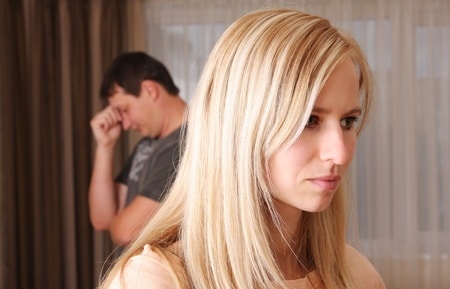[ad_1]
I am pro-marriage for a dozen different reasons. But just because I believe in marriage, monogamy, and raising children in a stable environment does not mean that I believe in marriage for everyone.
That’s an important distinction that often gets lost in the comments section.
Essentially, I believe the same thing as eHarmony’s founder, Neil Clark Warren: I’d rather have fewer and better marriages than more bad marriages that end in divorce.
That means that people who don’t want to get married should remain unmarried, and that they should kindly step aside when they find themselves dating people who do want to get married.
If you’re with a depressed or aggressive partner right now, don’t think that things are gonna get better after you get married. In fact, they’ll probably get worse.
But more importantly, that means that people who do want to get married need to choose their partners more wisely. Not based on chemistry. Not based on similar backgrounds. Not based on common interests. Spouses should be chosen by their temperament and ability to function as a unified couple. Compromise, communication, consistence, selflessness, sensitivity – these are the hallmarks of happy marriages, as you’ve heard, ad nauseum, by now.
Which brings me to a new study published in Prevention Science by Dr. Michael Lorber of New York University. In it, his team of researchers examined data collected from 396 couples during their first two-and-a-half years of marriage. Sure enough, 14% of men and 10% of women were extremely unhappy in their marriages after 30 months.
We could say that this happened because they got married at their blind and blissful passionate peaks. We could say that this happened because they had unrealistic expectations about what marriage was actually like. We could say that perhaps they got married too quickly and should never have tied the knot at all.
But what the study concludes is that there are certain types of people who are more likely to suffer from the honeymoon effect: “Men who were more depressed or aggressive, or whose fiancées were more depressed or less satisfied with the relationship, were more likely to exhibit the honeymoon effect,” Dr. Lorber tells The Huffington Post. “Things worked out pretty similarly for the women as well … The more depressed or aggressive women were, or the more depressed, aggressive, or dissatisfied their fiancés were, the more likely they were to have fairly high initial satisfaction that dropped sharply.”
In other words, if you’re with a depressed or aggressive partner right now, don’t think that things are gonna get better after you get married. In fact, they’ll probably get worse.
[ad_2]
www.evanmarckatz.com







